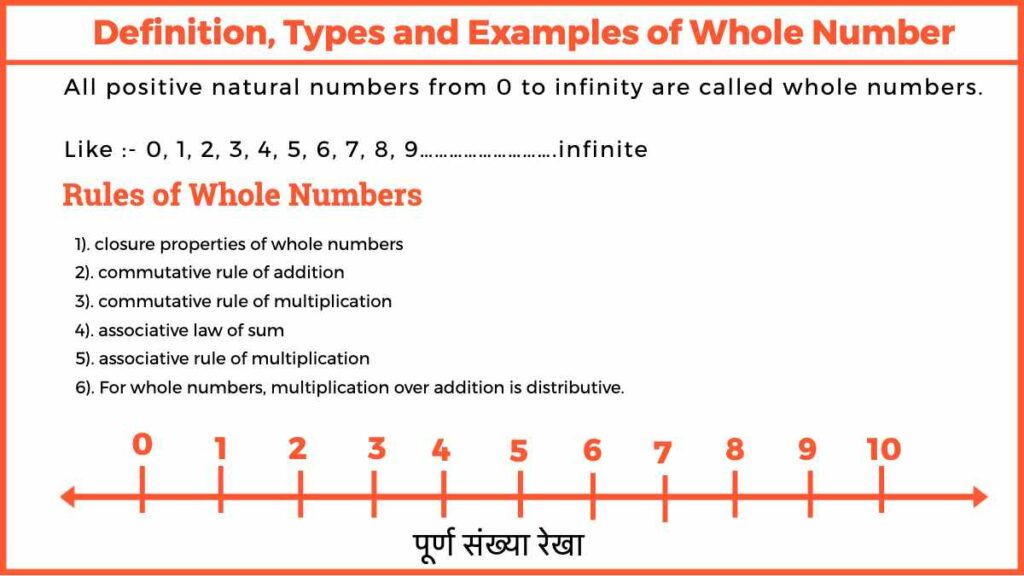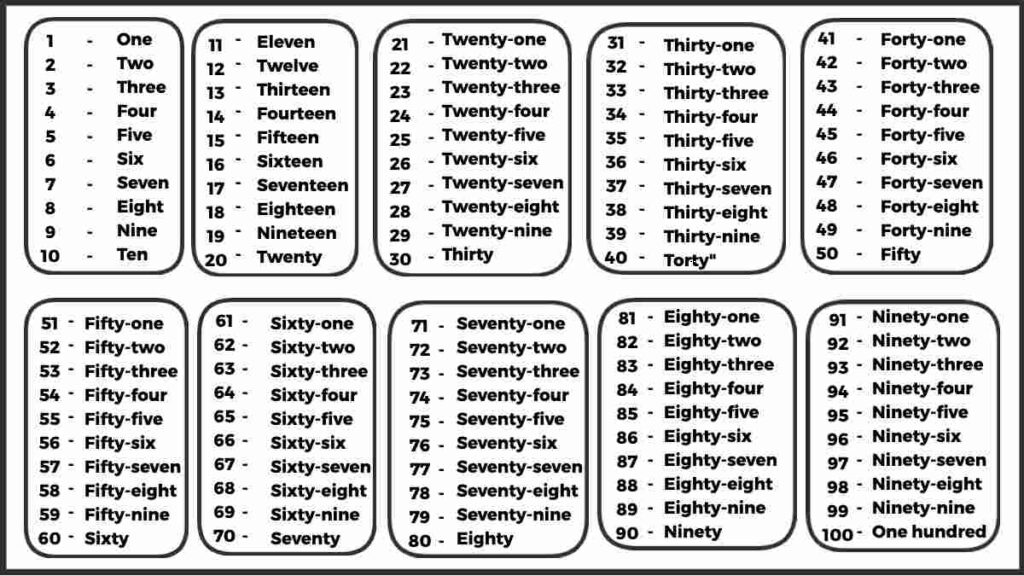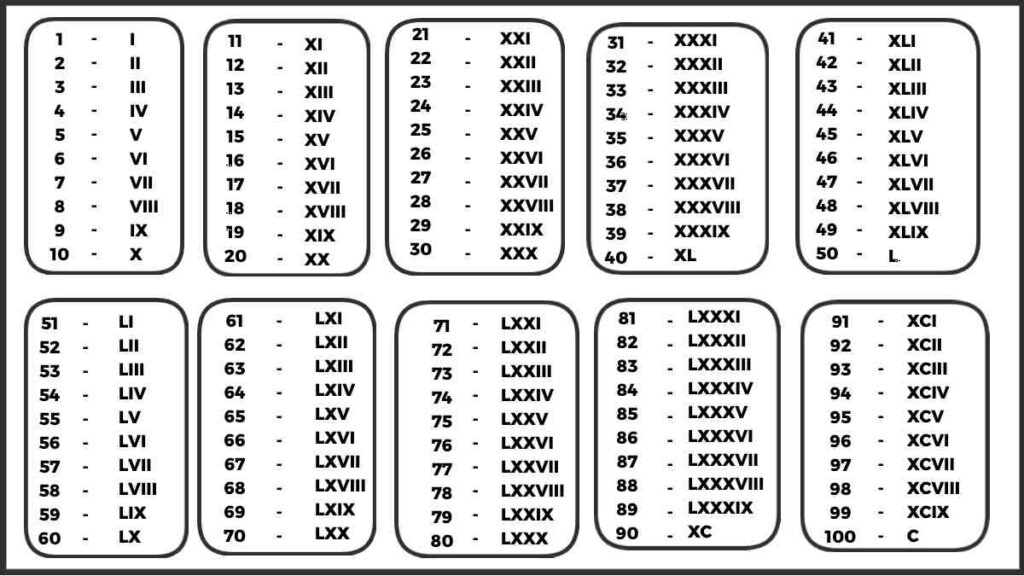If you are going to read what is called a Whole Numbers on this page, then definitely read the article completely.
On the previous page, we have shared information about Odd Numbers, so do read odd numbers.
Let us read and understand the properties and rules of what is called a whole number on this page.
Whole Numbers Definition
All positive natural numbers from 0 to infinity are called whole numbers.
The Whole Numbers are the number without fractions and it is a collection of positive integers and zero.
It is represented by the symbol “W” and the set of numbers are {0, 1, 2, 3, 4, 5, 6, 7, 8, 9,……………}. Zero as a whole represents nothing or a null value.
Whole Numbers : W = {0, 1, 2, 3, 4, 5, 6, 7, 8, 9, 10……}
Natural Numbers : N = {1, 2, 3, 4, 5, 6, 7, 8, 9,…}
Integers : Z = {….-9, -8, -7, -6, -5, -4, -3, -2, -1, 0, 1, 2, 3, 4, 5, 6, 7, 8, 9,…}
Counting Numbers : {1, 2, 3, 4, 5, 6, 7,….}
These number are positive integers including zero and do not include fractional or decimal parts (3/4, 2.2 and 5.3 are not whole number).
Also, arithmetic operations such as Addition, Subtraction, Multiplication and Division are possible on whole number.
Symbol
The symbol to represent whole number is the alphabet ‘W’ in capital letters.
W = {0, 1, 2, 3, 4, 5, 6, 7, 8, 9, 10,…}
Thus, the whole numbers list includes 0, 1, 2, 3, 4, 5, 6, 7, 8, 9, 10, 11, 12, ….
Whole Numbers on Number Line

Rules of Whole Numbers
There are 6 properties of whole numbers.
- Closure properties of whole number
- Commutative rule of addition
- Commutative rule of multiplication
- Associative law of sum
- Associative rule of multiplication
- For whole number, multiplication over addition is distributive.
1). Closure Properties of Whole Numbers
Whole number are closed under addition and multiplication. Adding or multiplying any two whole number gives a whole number.
Example :-
7 + 2 = 9, 7 x 9 = 63
Hence 9, 63 is a whole number.
2). Commutative Rule of Addition
Whole number follow the commutative rule in addition. Adding any 2 or more than 2 whole number in any order gives the same answer.
Example :-
- 1 + 2 + 3 + 4 + 5 = 15
- 5 + 2 + 4 + 1 + 3 = 15
3). Commutative Rule of Multiplication
Whole number follow the commutative rule in multiplication. Multiplying any 2 or more than 2 whole number in any order gives the same answer.
Example :-
- 9 × 6 = 54
- 6 × 9 = 54
4). Associative Law of Sum
All whole number follow the associativity rule in addition.
5). Associative Rule of Multiplication
All whole number obey the multiplication associative rule.
6). For Whole Number, Multiplication over Addition is Distributive.
Difference Between Whole Number and Natural Number
Let us understand the difference between natural number and whole number with the help of the table given below :
| Whole Numbers | Integer Number |
|---|---|
| All positive natural numbers from 0 to infinity are called whole numbers. For example :- 1, 2, 3, 4, 5, 6, 7, 8, 9 …………….infinite | The numbers made up of positive, negative and zero are integer numbers. Ex : -5, -4, -3, -2, -1, 0, 1, 2, 3, 4, 5 |
| The set of whole numbers is represented by ‘W’ (Whole Number). Whole numbers (W) = 1, 2, 3, 4, 5, 6, 7, 8, 9………..infinite | The set of whole numbers is represented by ‘I’ (Integer Number). Integer numbers (I) = -4, -3, -2, -1, 0, 1, 2, 3, 4, |
| All natural numbers are whole numbers. But all whole numbers are not natural numbers. | All whole numbers and their negative numbers are called integers. |
Facts :
- All the natural number are whole number
- All counting number are whole number
- All positive integers including zero are whole number
- All whole number are real number
Examples of Whole Number
Q.1 What is the smallest whole number?
A.0
B.1
C.2
D.4
Ans. 0 is the smallest whole number.
Q.2 What is the largest whole number?
A.0
B.1
C.2
D. cannot be defined
Ans. The largest whole number cannot be defined.
Q.3 The number starting from zero and going to infinity is called?
A. natural number
B. whole number
C. integer number
D. even number
Ans. whole number
Q.4 What are the natural numbers including zero called?
A. natural number
B. whole number
C. integer number
D. prime number
Ans. whole number
Q.5 What is a one digit number?
A.8
B.9
C.7
D.10
Ans. 10
FAQ
Ans. Whole number are positive number, including zero, without any decimal or fractional parts.
Ans. The smallest whole number is 0.
The first 100 whole numbers are 0, 1, 2, 3, 4, 5, 6, 7, 8, 9, 10, 11, 12, 13, 14, 15, 16, 17, 18, 19, 20, 21, 22, 23, 24, 25,26, 27, 28, 29, 30, 31, 32, 33, 34, 35, 36, 37, 38, 39, 40, 41, 42, 43, 44, 45, 46, 47, 48, 49, 50, 51, 52, 53, 54, 55, 56, 57, 58, 59, 60, 61, 62, 63, 64, 65, 66, 67, 68, 69, 70, 71, 72, 73, 74, 75, 76, 77, 78, 79, 80, 81, 82, 83, 84, 85, 86, 87, 88, 89, 90, 91, 92, 93, 94, 95, 96, 97, 98, 99.
Ans. Whole number are the set of integers including zero and all positive number.
Ans. Yes, 11 is a whole number.
Hope you have liked the information about whole number.
Comment for any question related to whole number.


